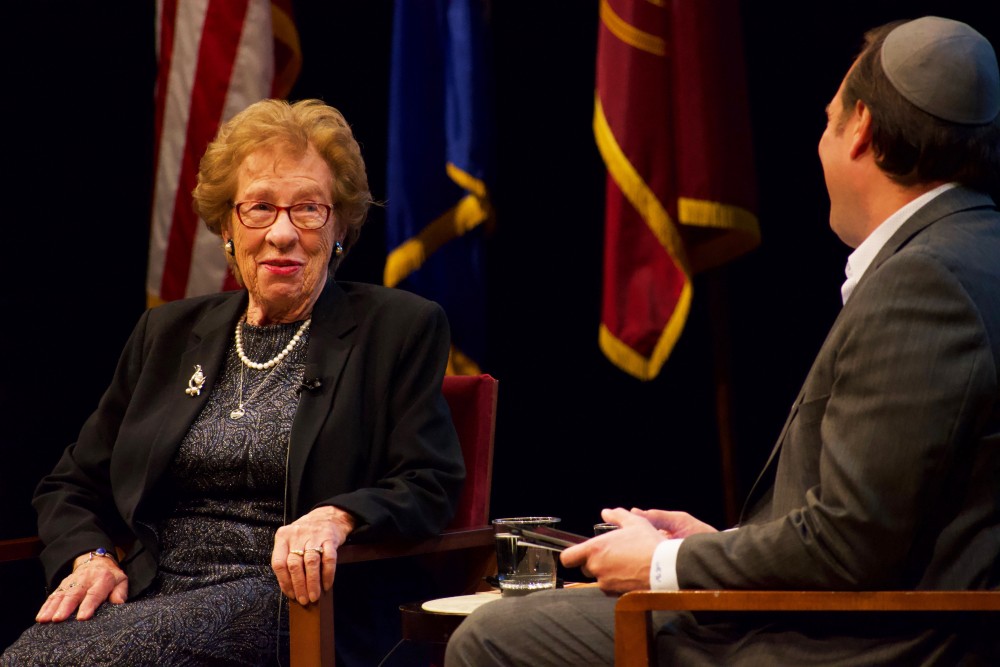A Holocaust survivor and stepsister to Anne Frank, Eva Schloss, spoke at the University of Minnesota Sunday, where she discussed topics including her novels, life experiences, opinions on current events and the persecution of minority groups.
Held by multiple branches of the Jewish organization Chabad in the Twin Cities, Schloss spoke of her time in Auschwitz-Birkenau, as well as her take on moving forward and readjusting to life outside of a concentration camp. Schloss also touched on her connection to Anne Frank and her stepfather Otto Frank.
“I hope together we can create a safer and better world,” Schloss said.
The event also commemorated the anniversary of the synagogue shooting that occurred in Pittsburgh last year. Before Schloss began her lecture, 11 candles were lit to honor each of those who died. While the event has been in planning for two years, Chabad’s University chapter reflected on the lives lost over a year ago on the coinciding date.
“Tonight we pay tribute and honor their memory,” said Rochi Silberstein, director of the Minneapolis Chabad Hebrew School.
Bonnie Padila, the Twin Cities coordinator for the Anti-Defamation League, a group dedicated to fighting anti-Semitism, announced at the event that Minneapolis Mayor Jacob Frey had declared Monday as Holocaust Education Day in Minneapolis.
University President Joan Gabel also gave an introduction, commenting on the importance of listening to Schloss’ words as well as educating students on history.
“Events like this also serve as a reminder to ensure that our students know that shortcomings do happen, why they happen, and help us learn that we can live in engaging ways to ensure that they never happen again,” Gabel said.
Rabbi Yitzi Steiner, head of the University’s Chabad branch, also spoke at the event. Steiner said that despite what Schloss endured, she is more than a survivor. Instead, he sees her as a “victor” or a “heroine.” He also said students should be taught more than facts and figures but also humanity and compassion.
“We have to be educated about how something like that happens to ensure that that doesn’t happen again,” Steiner said in an interview with the Minnesota Daily.
Steiner noted that few survivors are left to tell their stories, especially to younger individuals who may not have heard them before.
“The fact is the next generation, children, our children, will never meet a Holocaust survivor in person. And that’s the unfortunate reality,” Steiner said in an interview, adding that a loss of survivors could be linked to a rise in Holocaust denial.
In an anecdote from one of her novels, Schloss also discussed a conversation her father had with her and her family inside a train on the way to Auschwitz-Birkenau.
“My father with tears in his eyes apologized to us. He said he won’t be able to protect us anymore … but now you will be on your own,” Schloss said, noting that the train ride was the last time her family was together. Schloss’ father and brother both died in the Holocaust.
Schloss finished her time by pointing out that beyond the Jewish population, there is also persecution of other races and religions.
“There is [also] discrimination against people who are different, who have different beliefs,” she said, advocating for more understanding and compassion for different religious and minority groups.









